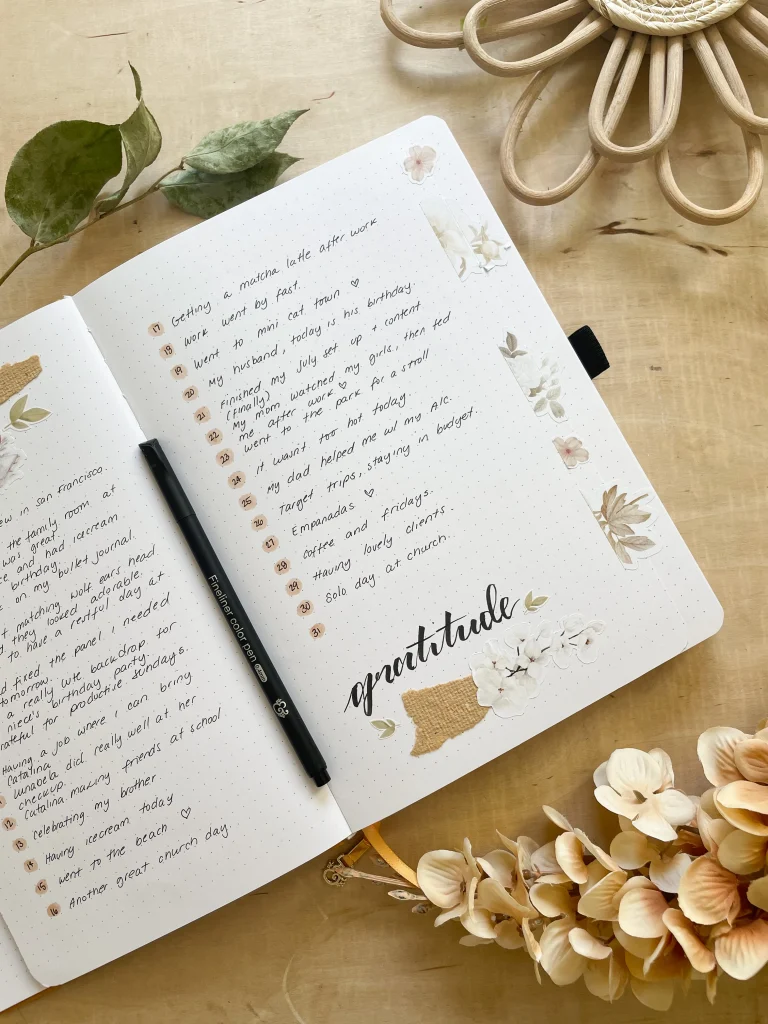In a fast-paced world where stress and negativity often dominate our thoughts, finding a practice that can shift our mindset and improve our overall well-being is invaluable. Gratitude journaling, the simple act of regularly writing down things you are thankful for, has emerged as a powerful tool to foster positive mental health, enhance emotional resilience, and promote overall happiness. This article explores the concept of gratitude journaling, its benefits, and practical tips for integrating this practice into your daily routine.

Understanding Gratitude Journaling
Gratitude journaling involves consistently recording the things, people, or experiences for which you are grateful. This practice encourages a focus on the positive aspects of life, shifting attention away from negative thoughts and stressors. The act of writing helps solidify these feelings of gratitude, making them more concrete and easier to recall.
While the concept is simple, its impact can be profound. By regularly reflecting on the positives, individuals can cultivate a more optimistic outlook and develop a habit of recognizing and appreciating the good in their lives.
Benefits of Gratitude Journaling
The benefits of gratitude journaling are supported by a growing body of research in psychology and neuroscience. Here are some of the key advantages:
- Improved Mental Health: Regularly writing about things you are grateful for can significantly reduce symptoms of depression and anxiety. Gratitude journaling shifts the focus from negative thoughts to positive ones, fostering a more optimistic outlook on life.
- Enhanced Emotional Resilience: Practicing gratitude helps build emotional resilience by teaching individuals to find positive aspects even in challenging situations. This can lead to greater emotional stability and the ability to cope with stress more effectively.
- Better Sleep: Studies have shown that individuals who practice gratitude tend to sleep better and longer. Focusing on positive thoughts before bed can reduce the occurrence of negative, stress-inducing thoughts that often disrupt sleep.
- Increased Happiness: Gratitude journaling has been linked to higher levels of happiness and life satisfaction. By regularly acknowledging the good in life, individuals can experience more frequent and intense feelings of joy.
- Improved Relationships: Expressing gratitude can enhance relationships by fostering a sense of connection and appreciation. People who regularly practice gratitude are often more empathetic and considerate, leading to stronger and more positive interactions with others.
- Physical Health Benefits: Gratitude can also have a positive impact on physical health. Research suggests that grateful individuals tend to have lower blood pressure, a stronger immune system, and experience fewer aches and pains.

How to Start a Gratitude Journal
Starting a gratitude journal is a straightforward process, but consistency is key to reaping its benefits. Here are some tips to get started:
- Choose Your Medium: Decide whether you prefer a physical journal or a digital one. Both have their advantages—handwriting can be more personal and reflective, while digital entries can be more convenient and accessible.
- Set a Routine: Find a time that works best for you to write in your gratitude journal. Many people find that writing in the morning helps set a positive tone for the day, while others prefer to write before bed to reflect on the day’s events.
- Be Specific: Instead of writing vague statements like “I am grateful for my family,” try to be specific. For example, “I am grateful for my partner making me a cup of coffee this morning” or “I am thankful for the sunny weather during my walk today.” Specificity helps you to relive and savor the positive experiences.
- Focus on Quality, Not Quantity: It’s not necessary to write a long list each day. Even noting one or two meaningful things can have a significant impact. The goal is to cultivate a genuine sense of gratitude, not to complete a checklist.
- Reflect on the Positive: If you struggle to find things to be grateful for, reflect on small, everyday moments that bring you joy or comfort. These can be as simple as enjoying a warm meal, a friendly conversation, or a moment of peace.
- Include Challenges: Sometimes, it can be helpful to include challenging situations and find aspects within them to be grateful for. This can foster resilience and a more balanced perspective on life’s ups and downs.
- Stay Consistent: Like any habit, consistency is crucial. Aim to write in your gratitude journal regularly, whether it’s daily or a few times a week. Over time, this practice can become a natural and integral part of your routine.

Conclusion
Gratitude journaling is a powerful practice that can transform your mindset and improve your overall well-being. By regularly focusing on the positive aspects of life, you can enhance your mental and physical health, build emotional resilience, and cultivate a greater sense of happiness and satisfaction. Whether you are new to the concept or looking to deepen your practice, starting a gratitude journal can be a simple yet profound step toward a more fulfilling and joyful life.


